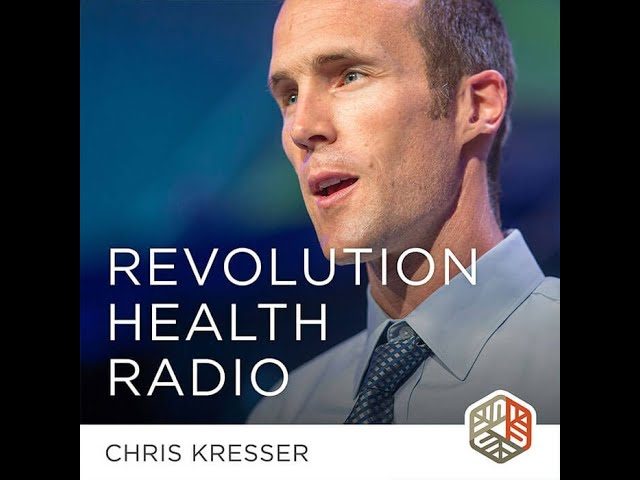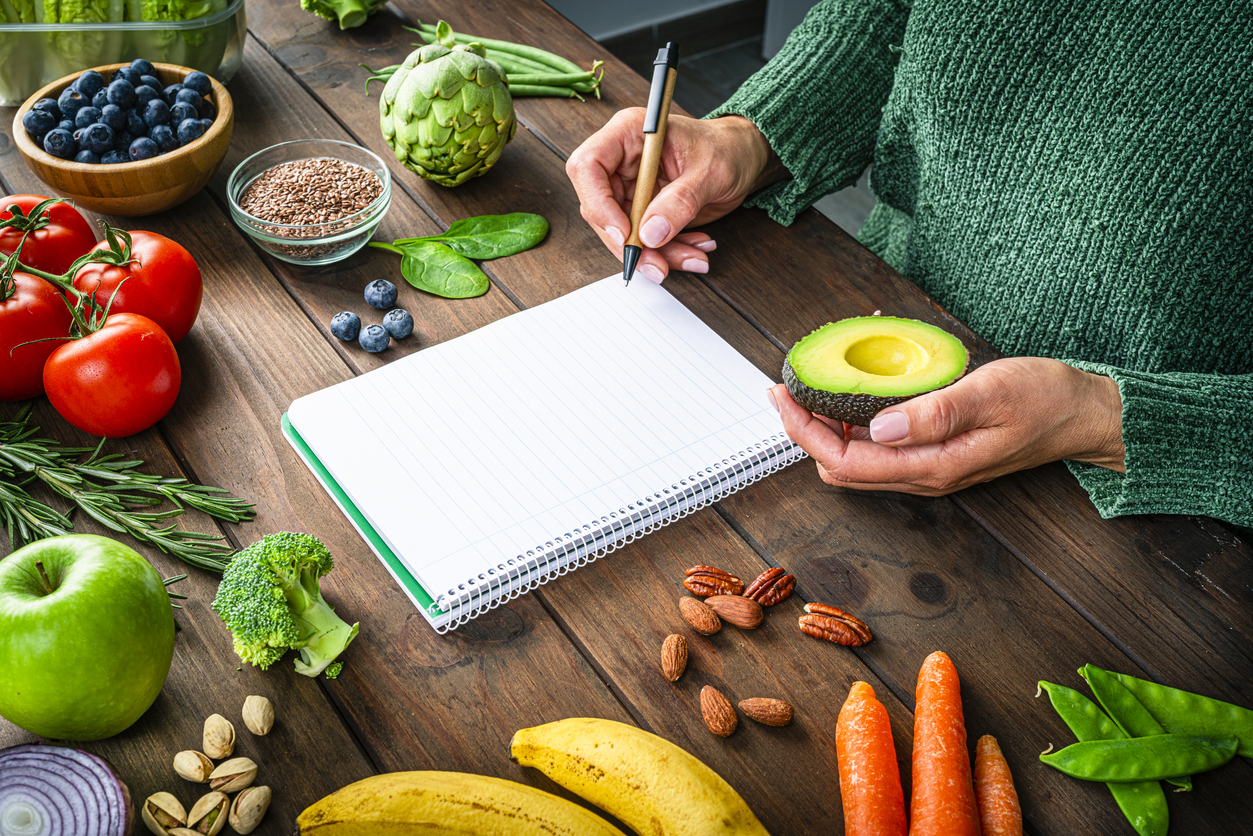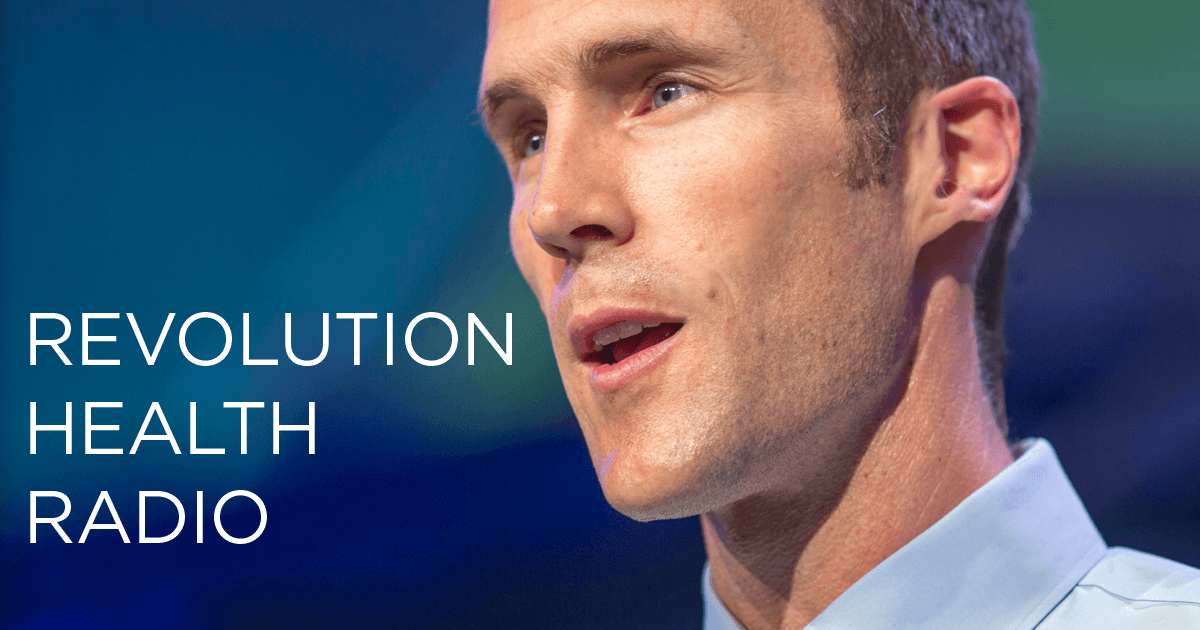
The Link between Sleep and Eating and What to Eat for a Good Night’s Sleep

Page Contents:
Deep, restorative sleep is considered by many to be the Holy Grail of health—it requires significant effort to achieve, but is incredibly valuable! Many lifestyle factors impact sleep, including your exercise routine, stress level, and the behaviors you engage in during the hours leading up to bedtime. However, nutrition also has a powerful yet underappreciated impact on sleep. Read on to learn about the link between sleep and what you eat, and how strategic nutrition interventions can help you achieve deep, restorative sleep.
Four Eating Behaviors That Impact Sleep Quality
Emerging research indicates that several habitual eating patterns adversely impact sleep quality. These patterns include:
- Eating a diet full of processed and refined foods
- Eating late at night or close to bedtime
- Low-carb dieting
- Inappropriately timed caffeine and alcohol consumption
Your diet and eating patterns affect your sleep. Check out this article from nutritionist Lindsay Christensen to find out how you can achieve deeper sleep by changing your diet. #healthylifestyle #wellness
1. Processed, Refined Foods Adversely Impact Sleep Quality
Correlational studies suggest that processed food consumption depreciates sleep quality. While we can’t rule out the potential impact of confounding factors that often accompany an unhealthy diet on sleep levels, such as a lack of physical activity, this relationship is worth a more in-depth look.
Eating processed foods may reduce sleep quality through several mechanisms. First, processed foods have a high “inflammatory potential,” meaning they spike pro-inflammatory signaling molecules in the body. (1) Several of these pro-inflammatory signaling molecules are linked to sleep disturbances, such as insomnia and non-restorative sleep. (2)
Secondly, processed foods promote inflammation by altering the gut microbiome. The gut microbiome plays a critical role in sleep regulation; changes in the gut microbiome triggered by processed foods may depreciate sleep quality.
Finally, a high intake of processed foods may also lead to an accumulation of excessive body fat, which, in turn, is a contributing factor in the development of obstructive sleep apnea (OSA). (3, 4) OSA is an intermittent blockage of airflow during sleep that deprives the brain and body of oxygen. It is a common cause of poor sleep quality in American adults and, left untreated, increases the risk of chronic diseases such as heart disease and type 2 diabetes. (5) Reducing your intake of processed foods and switching to a nutrient-dense diet centered around whole, unprocessed foods may improve OSA and sleep quality. (6)
2. Eating Late at Night Reduces Sleep Quality
I typically recommend that my clients stop eating at least three hours before bed to optimize their metabolic health, including their blood sugar control; however, it turns out that this recommendation may also improve sleep quality. The relationship between sleep quality and eating appears to be mediated, in large part, by our circadian rhythms.
Your circadian rhythm is the set of internal processes in your body that operates on a roughly 24-hour schedule and regulates numerous aspects of your physiology, from your sleep-wake cycle to your immune response. Light exposure is the primary regulator of the circadian rhythm in the brain. However, emerging research indicates that meal timing may be an equally potent cue for circadian rhythms in peripheral organs, such as your pancreas, liver, and gastrointestinal system. (7, 8) Consuming meals at consistent times of the day and avoiding late-night eating are associated with a robust, healthy circadian rhythm. Conversely, eating on an irregular schedule or late in the evening is associated with circadian rhythm disruption. A healthy circadian rhythm promotes high-quality, restorative sleep, whereas circadian disruption contributes to sleep impairment.
Preliminary research suggests that eating within three hours of bedtime is positively associated with nocturnal awakening. (9) Late-night eating is also associated with detrimental changes in sleep efficiency (the percentage of time a person sleeps relative to the amount of time they spend in bed), REM sleep, and sleep latency (how long it takes to fall asleep).
While avoiding food intake at least three hours before bed is appropriate for most people, there are two situations where it may not be ideal. People with type 1 diabetes may benefit from a bedtime snack to prevent nocturnal hypoglycemia. Athletes who have a heavy training load or who are training in the evening may also benefit from an evening snack.
Shortly, I will discuss the benefits of time-restricted eating (TRE) for strengthening circadian rhythms and improving sleep quality.
3. Are Low-Carb Diets Helpful or Harmful for Sleep?
Dietary carbohydrates impact the body in diverse ways, so it’s no surprise that some people experience changes in their sleep patterns when they cut back on carbs. The research on very-low-carbohydrate diets (aka a ketogenic diet) and sleep quality is conflicting. For example, one study found that a ketogenic diet increases slow-wave sleep, which may play an essential role in brain restoration and recovery; however, it also decreased REM sleep, which is crucial for memory. (10) The researchers note that it’s unlikely that nutritional ketosis mediated these sleep changes; instead, improvements in leptin levels or other neuroendocrine factors related to satiety may have altered subjects’ sleep structure.
In children with epilepsy, for whom the ketogenic diet was initially designed, a keto diet has been found to increase REM sleep and overall sleep quality. (11) Conversely, some research suggests that low-carb diets raise cortisol (12); elevated cortisol may, in turn, hamper sleep quality. I stand by my position that self-experimentation is ultimately required to determine if a low-carb or keto diet is helpful or harmful for your sleep. A nutritionist can help guide you through this experimentation process.
4. Caffeine and Alcohol Impact Sleep
It probably comes as no surprise to you that caffeine and alcohol have significant impacts on sleep. Let’s first discuss the relationship between caffeine and sleep.
As sleep scientist Matthew Walker describes elegantly in his book, Why We Sleep, adenosine is a chemical that builds up in our bodies throughout the day, causing us to feel less alert and wakeful as the day progresses. Adenosine accumulation creates “sleep pressure,” an unconscious biological response that makes us want to sleep. Appropriate adenosine accumulation over the day helps us fall asleep quickly at night. As we sleep, the “plug” is pulled in the proverbial sink where we’ve been accumulating adenosine, emptying our bodies of this potent chemical, and allowing us to start fresh the next day.
Caffeine is a potent adenosine antagonist. (13) While caffeine gives us a stimulating mental boost, it simultaneously creates a communication barrier between your brain and adenosine. This is problematic for people drinking caffeine late in the day, as it reduces sleep pressure at night and can reduce restorative non-REM sleep (also known as “deep sleep” or “slow-wave sleep”) and increase nighttime awakenings. (14)
I recommend that my clients stop drinking caffeine at noon or 1 p.m. at the latest to give their bodies ample time to build up adenosine, allowing for the buildup of sleep pressure and, hopefully, effortless sleep at night. If you are someone who feels perfectly capable of falling asleep after having a post-dinner cup of coffee, you may be surprised to learn that your sleep quality may still suffer, despite being physically able to fall asleep. The half-life of caffeine in the human body ranges from a minimum of two hours to a maximum of 12 hours; research suggests stopping caffeine intake a minimum of six hours before bed. (15) Some self-experimentation may be required to determine when you should have your last coffee or black tea of the day. (16)
Alcohol intake also has undesirable effects on sleep. Alcohol has a sedative impact on the body, meaning it acts more like anesthesia than real sleep. (17) The dose of alcohol is also essential; lower doses may increase total sleep time while reducing overall sleep quality, whereas higher doses activate the sympathetic nervous system and disrupt sleep. (18)
Cutting back on your caffeine intake or steering clear of late-night snacks can improve your sleep, but without the right support, it can be hard to make those changes stick. Having the support of a health coach—a professional who’s trained in motivation, behavior change, accountability, and more—can supercharge your success while you change your habits and reach for your health goals.If you’re trying to change your habits, consider working with a Functional Health coach. And if you’re interested in learning more about what health coaches do and how they learn to do it, visit us at the ADAPT Health Coach Training Program.
Nutritional Strategies for Improving Sleep Quality
There are various nutritional strategies you can use to improve your sleep quality and get the deep, restorative rest your body requires to function at its best.
Eat an Anti-Inflammatory, Nutrient-Dense Diet
Chronic inflammation is a well-known contributing factor to sleep disruption, and it circles back around to the types of foods we include in our diets. A higher dietary inflammatory index (a tool used to assess the role of inflammation induced by diet) is negatively related to sleep quality in adults with OSA and in otherwise healthy adults. (19, 20) Conversely, adherence to a Mediterranean diet (the quintessential “anti-inflammatory diet” discussed in the scientific literature) is associated with improvements in multiple sleep parameters. (21) Focusing on nutrient density is essential because short sleep duration (aka not getting enough sleep) is linked to inadequate levels of multiple micronutrients, including calcium, magnesium, and vitamin D.
While a Mediterranean diet has potential benefits, if you suffer from sleep challenges, I suggest that you start with an “upgraded” anti-inflammatory diet: a Paleo template diet. A Paleo template diet removes common dietary triggers of inflammation, such as acellular carbohydrates and industrial seed oils, and can thus help reduce inflammation that may contribute to sleep disruption. You can learn more about the Paleo template in Chris’s article “Beyond Paleo: Moving from a ‘Paleo Diet’ to a ‘Paleo Template.’”
Find Your Optimal Carb Intake and Timing
Going either too low or too high in carbohydrates may have detrimental effects on sleep quality. One mechanistic reason for this is that dietary carbohydrates increase levels of the amino acid tryptophan in our brains. Tryptophan is a precursor to serotonin, which is, in turn, a precursor to the critical sleep-inducing hormone melatonin. (22, 23) One study published in the American Journal of Clinical Nutrition found that consuming a high-glycemic-index carbohydrate meal four hours before bed shortened the amount of time it took subjects to fall asleep. (24)
While I don’t put a lot of stock in the glycemic-index concept, the critical takeaway here is that eating carbohydrates with your evening meal may help you fall asleep faster. I would focus on nutrient-dense carbs such as sweet potatoes, plantains, and fruit, though you could also eat some white rice.
On the flip side, research suggests that a ketogenic diet may promote adenosine accumulation in the brain, which, as I discussed earlier, impacts sleep pressure and one’s ability to fall asleep seamlessly at night. At least for some people, a ketogenic diet may have calming effects on the nervous system and support optimal sleep quality. (25)
Try Time-Restricted Eating
A disrupted circadian rhythm can impair sleep, causing insomnia and reductions in sleep quality. TRE, an eating pattern in which eating is limited to a certain number of hours each day, has been found to beneficially amplify circadian rhythms. (26) In animal studies, TRE improves the sleep-wake cycle in mice. (27) In humans with metabolic syndrome, a 10-hour TRE pattern has been found to enhance multiple markers of metabolic health while also improving subjective sleep quality. (28)
If you are new to TRE, I suggest that you start by fasting for 13 hours each night, limiting your daily eating window to 11 hours. Over time, if your body responds well, you can decrease your fasting window. Many of my clients find that a 16:8 eating pattern works well for them. (29)
Six Foods to Eat for Better Sleep
A growing body of research suggests that specific foods and food components may improve sleep quality.
1. Prebiotics
Prebiotics are compounds in foods that, when consumed, promote the growth of beneficial gut bacteria. While prebiotics are often employed in nutrition protocols for their beneficial effects on gut health, early research suggests that they may also improve sleep. (30) Dietary prebiotics may support restful sleep by boosting gut bacteria that produce sleep-promoting metabolites. (31) Good sources of prebiotics include:
- Artichokes
- Asparagus
- Bananas
- Blueberries
- Blackberries
- Garlic
- Onions
- Leeks
- Jicama
- Green plantains
- Jerusalem artichokes
- Oats
- Chickpeas
- Lentils
2. Omega-3 Fatty Acids
Higher blood levels of docosahexaenoic acid (DHA), an omega-3 fatty acid found in seafood, are associated with better sleep. (32) While the mechanisms behind these effects are not well understood, they may improve sleep quality by reducing inflammation. I typically recommend that my clients consume at least three to four servings of seafood, preferably wild-caught seafood, per week to optimize their omega-3 fatty acid levels.
3. Tryptophan-Rich Foods
Ensuring sufficient intake of tryptophan-rich foods in your diet may also support restorative sleep by enhancing melatonin signaling. (33) The foods richest in tryptophan include:
4. Sour Cherries and Kiwi Fruit
Sour cherries are a rich source of food-based melatonin. (34) Dietary supplementation with tart cherry juice has been found to significantly increase total sleep time and sleep efficiency, with a borderline-significant increase in circadian rhythm amplitude.
Surprisingly, kiwi fruit may also improve sleep quality by providing food-based serotonin! In healthy subjects 20 to 55 years of age, the consumption of two kiwi fruits one hour before bedtime nightly for four weeks significantly reduced waking time after sleep onset and sleep latency and increased total sleep time and sleep efficiency. (35) I know the consumption of kiwi fruit one hour before bed goes against my previous recommendation to cease eating at least three hours before bed, but this “rule” may be worth bending in this scenario.
5. Magnesium-Rich Foods
Magnesium-rich foods such as leafy greens and almonds are also helpful additions to a sleep-support diet. Magnesium may enhance melatonin secretion and activate calming gamma-aminobutyric acid (GABA) neurotransmission. It can be challenging to obtain sufficient magnesium in the diet, so you might consider adding magnesium glycinate to your supplement routine at night.
6. Bone Broth, Gelatin, and Collagen Peptides
Bone broth, gelatin, and collagen are abundant in the amino acid glycine, which has sleep-promoting effects and, fascinatingly, decreases body temperature. (36) Our bodies are evolutionarily designed to experience a drop in body temperature at night; this temperature shift prepares us for sleep. By potentiating our bodies’ natural drop in body temperature, supplemental glycine from these food sources can help induce sleep.
Support Your Gut Microbiome
Fascinating research indicates that gut microbiome diversity is associated with healthy sleep physiology. (37) Eating a diet rich in many of the foods mentioned above, such as prebiotic fibers and omega-3 fatty acids, can help support gut microbiome diversity. (38, 39) You might also consider adding fermented foods to your diet, as these contain probiotic species and other bioactive compounds that support a robust, diverse gut microbiome. (40)
Nutrition for Optimal Sleep in Athletes
Last but not least, if you are an athlete, there are several additional nutritional interventions you may want to consider for optimizing your sleep quality. (41)
While carbohydrate-fueling strategies vary widely from one athlete to another, athletes who exercise in the evening may experience improved sleep quality by eating a high-carbohydrate meal post-exercise but several hours before bed. (42) Conversely, some athletes prefer to “sleep low,” meaning they consume a low-carbohydrate meal in the evening so that their glycogen stores become depleted overnight. This strategy has been found to improve lipid oxidation during exercise the following morning, which aids in training adaptations. The right approach for one athlete may be inappropriate for the next, so this is a situation where professional nutritional guidance can come in handy. (43)
Finally, food-based antioxidants such as vitamins C and E may boost the therapeutic potential of sleep in athletes by exerting antioxidant activities during sleep. (44) You can find vitamin C in:
- Lightly cooked and raw broccoli
- Brussels sprouts
- Kale
- Citrus fruits
- Bell peppers
- Strawberries
Vitamin E is abundant in:
- Nuts
- Seeds
- Extra virgin olive oil
Achieving deep, restorative sleep is an important part of ancestral health. By reducing sleep-disrupting foods and behaviors and embracing nutritional interventions that can improve your sleep quality, you can get the rest you need.






